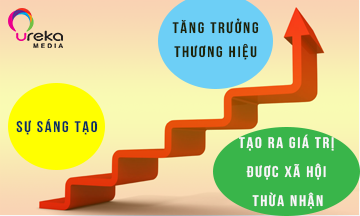Results from the latest survey also reveal that the confidence levels across Southeast Asia continue to hold strong with four out of six countries in the region retaining their top 10 spots globally. This quarter, both Indonesia and Philippines have the same level of confidence of 127 percentage points and become the first most confident countries globally. Malaysia had the biggest gain in this quarter, up 13 points which was the most outstanding increase globally, and jumped 8 spots to the seventh place as compared to the previous quarter (117 pp, +13 vs Q1 2018). Thailand, on the contrary, lost 8 points to 102 percentage points (102 pp, -8 vs Q1 2018) and slipped 10 spots to the be the 13th most confident country on the globe. The average global consumer confidence is 104 pp (-2 vs Q1 2018). (See Chart 1)

“The consumer confidence level in Vietnam remains on par with that of the second quarter last year, well above the global average and the neutral threshold. The country still remains its highest level for two years,” observed Nguyen Huong Quynh, Managing Director, Nielsen Vietnam. “The higher trend in sentiment observed in the last couple of quarters, coupled with the continued improvement in key economic indicators has led to the growth of some categories such as travelling, out-of-home activities and the latest technology. This likely impacted FMCG sales in Q2, with overall growth of just 2.7%.”
JOB SECURITY AND HEALTH REMAIN VIETNAMESE’ TOP KEY CONCERNS.
Vietnamese continued to rank job security (46%, +3% vs Q1 2018) and health (42%, +1% vs Q1 2018) as their top two key concerns while 22% of the survey respondents indicated the nation’s
economic status (22%, -1% vs Q1 2018) and work-life-balance matter (22%, -1% vs Q1 2018) as the third most worrisome.
Despite the positive economic performance, recessionary sentiments among Vietnamese consumers continued to remain high as 48% respondents said that the nation is still in recession time. However, nearly five in ten respondents were feeling positive that the country would be out of an economic recession in the next 12 months (46% compared to 38% in Q1 2018).
Vietnamese consumers also continued to feel upbeat on their personal state of finance with 76% perceiving that their state of personal finances to be either good or excellent in the next 12 months (-1% compared to Q1) but nearly half of respondents stated that it is not a good time to buy.
Other key areas of concern were increasing utility bills (11%), parents’ welfare and happiness (11%) and children education and/or welfare (8%). (See chart 3)
“The Vietnamese economy performance has gained momentum during the last 3 quarters with GDP growing at around 6 to 7%, yet the top concerns for Vietnamese consumers remain with the stability of jobs and the economy. Many still believe that the country is still in recession and it is not a good time to spend, further highlighting that there are other societal matters that could waver their optimism towards a better life that they wish to lead” notes Quynh. “Despite the fact that none of the economic KPIs indicate that the country is in recession, consumers continue to believe that the current situation is not really positive and the future is yet to define. This sentiment could significantly influence consumers’ spending and saving patterns.”
SAVING AND SPENDING AT THE SAME TIME.
Globally, Southeast Asia consumers are leading the way when it comes to saving intentions, which remains unchanged over the past two years. In quarter 2, Filipinos are the world’s most avid savers (71%) followed by Vietnamese (70%), Singaporeans (69%) and Indonesians (66%). The global average of consumers putting their spare cash into savings is 53% (+1% compared to Q1 2018).
However, after covering essential living expenses, Vietnamese consumers were eager to spend on big-ticket items as they wish to lead a better life. Nearly half of consumers were willing to spend on holidays (49%). And this desire gradually grew over the past year. Besides vacations, 46% of Vietnamese consumers would like to spend their spare cash on new clothes and new technology products. In addition, 43% wanted to divert any spare cash towards out of home entertainment activities and 38% wanted to spend on home improvements / decoration. More noticeably, spending on medical insurant premiums keeps increasing with this intention gaining 3 points in this quarter (41%, +3% compared Q1 2018). (See chart 4)
“Saving is Vietnamese’ DNA. So, Vietnamese consumers still continue this practice for their and their children’s future. With health and wellbeing becoming the top key priorities for our consumers, products and services that can adapt to a great demand in healthcare will earn their way to the top of the mind of Vietnamese people” explained Quynh.

About The Conference Board® Global Consumer Confidence Survey
The Conference Board® Global Consumer Confidence Survey is conducted in collaboration with Nielsen. It was conducted November 8 through November 23, 2017 and polled more than 32,000 online consumers in 64 countries throughout Asia-Pacific, Europe, Latin America, the Middle East/Africa and North America. The sample includes internet users who agreed to participate in this survey and has quotas based on age and sex for each country. It is weighted to be representative of internet consumers by country. Because the sample is based on those who agreed to participate, no estimates of theoretical sampling error can be calculated. However, a probability sample of equivalent size would have a margin of error of ±0.6% at the global level. This survey is based only on the behavior of respondents with online access. Internet penetration rates vary by country. The Conference Board uses a minimum reporting standard of 60% internet penetration or an online population of 10 million for survey inclusion. The Nielsen China Consumer Confidence Index is sourced from a separate survey conducted by Nielsen China, which is based on a mixed methodology survey of more than 3,000 respondents in China. The Global Consumer Confidence Survey was established in 2005.
About Nielsen
Nielsen Holdings plc (NYSE: NLSN) is a global performance management company that provides a comprehensive understanding of what consumers Watch and Buy. Nielsen's Watch segment provides media and advertising clients with Total Audience measurement services across all devices where content — video, audio and text — is consumed. The Buy segment offers consumer packaged goods manufacturers and retailers the industry's only global view of retail performance measurement. By integrating information from its Watch and Buy segments and other data sources, Nielsen provides its clients with both world-class measurement as well as analytics that help improve performance. Nielsen, an S&P 500 company, has operations in over 100 countries that cover more than 90 percent of the world's population. For more information, visit www.nielsen.com
About The Conference Board
The Conference Board is a global, independent business membership and research association working in the public interest. Our mission is unique: to provide the world’s leading organizations with the practical knowledge they need to improve their performance and better serve society. Winner of the Consensus Economics 2016 Forecast Accuracy Award (U.S.), The Conference Board is a non-advocacy, not-for-profit entity, holding 501(c) (3) tax-exempt status in the USA. http://www.conferenceboard.org
Source: Nielsen & The Conference Board
















![[ALL ABOUT PROGRAMMATIC] PART 5: SPECIFIC INGREDIENTS – DSP (Demand Side Platform)](https://urekamedia.com.my/uploads/data/uploaded/images/photo_news/800x800/news_20160712065253/programmatic-urekamedia-mediaeyes-dsp_part5_thumbnail1.jpg)










